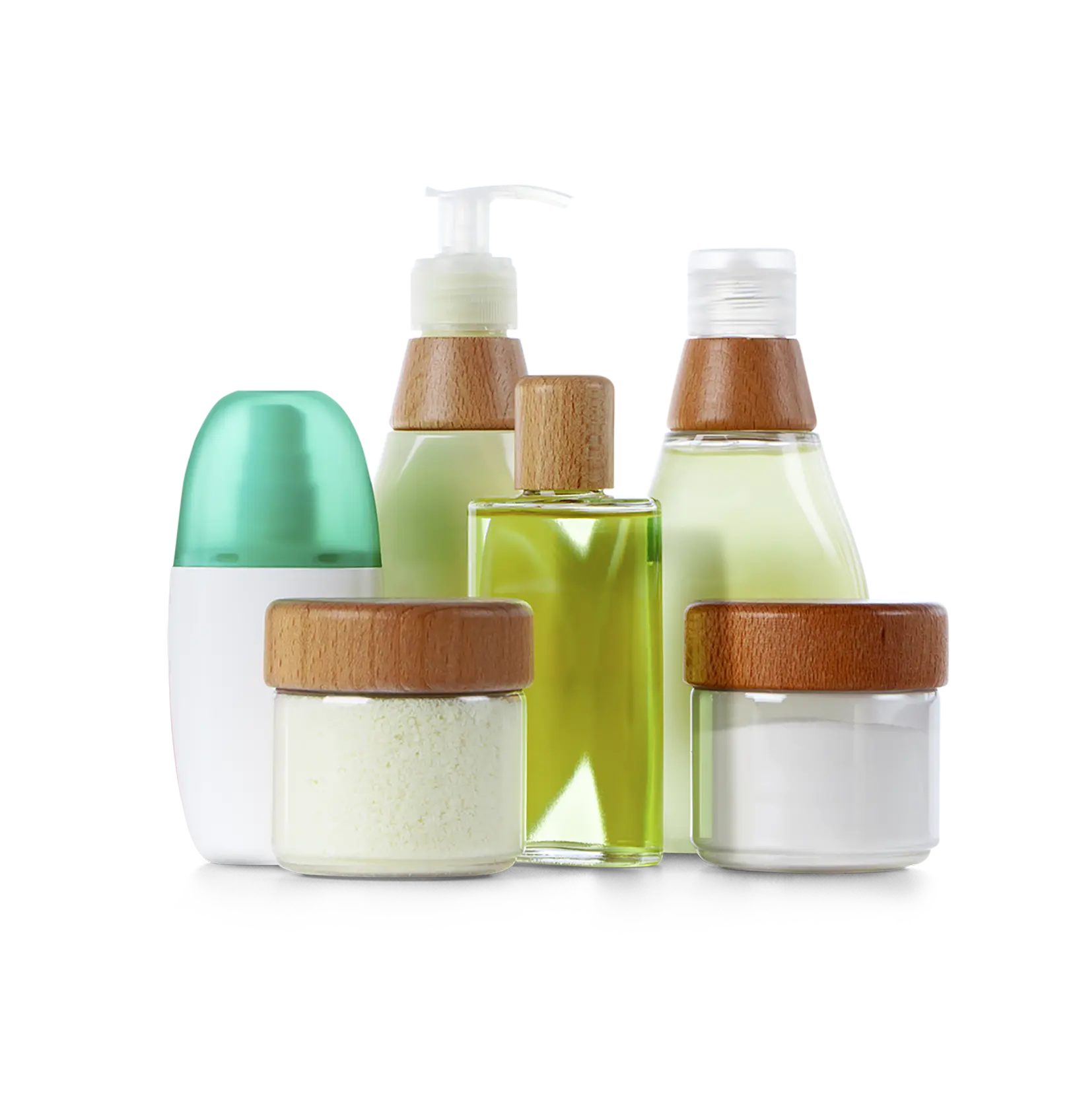Featured in this post
What Cosmetic and Personal Care Manufacturers Need To Know About New Regulatory Changes and How PLM Supports Compliance
What Cosmetic and Personal Care Manufacturers Need To Know About New Regulatory Changes and How PLM Supports Compliance
26 Jan 2024
 Aptean Staff Writer
Aptean Staff Writer 
Regulatory requirements are nothing new for the personal care industry. In fact, the manufacture, distribution and sale of cosmetics and personal care products are well known to be subject to a complex web of requirements designed to ensure the safety, efficacy and integrity of the products that we use on our bodies.
Increasing consumer scrutiny is driving demand for safer, more sustainable products and greater transparency. Unsurprisingly, regulators are responding to these pressures—introducing and amending standards to both meet consumer expectations and promote responsible, ethical and environmentally-friendly practices.
Adherence to regulatory standards in the personal care industry isn’t just a legal obligation, but also an opportunity to demonstrate your commitment to consumer safety and ethical business practices—potentially enhancing your brand’s reputation and attracting new customers.
With that in mind, here’s what you need to know about four of the key impending regulatory changes facing the industry and what your business can do to prepare.
1. EU Regulation on Deforestation-Free Supply Chains
Climate change and biodiversity loss is a huge global concern. The EU’s new deforestation regulation requires that companies trading in cattle, cocoa, coffee, palm oil, rubber, soya and wood, as well as products derived from these commodities, conduct due diligence to ensure that the goods produced are not a result of deforestation or forest degradation in the EU or elsewhere in the world.
Companies must confirm that items produced on or after 29 June 2023 (except for timber products) were done so on land that has not been subject to deforestation or forest degradation. They’ll also have to verify that these products comply with the relevant legislation of the country of manufacture, including any legislation on human rights, and prove that the rights of affected indigenous peoples have been respected.
The Challenges
The trend towards natural ingredients has meant that palm oil and its derivatives have become crucial ingredients in cosmetic and personal care products. This means that manufacturers and retailers that are meeting this consumer expectation will need to provide concrete evidence to demonstrate that they meet the new requirements, otherwise they could face potential fines of up to 4% of the company’s EU turnover, confiscation or exclusion from public funding or contracts.
The Solution
Look for product lifecycle management (PLM) that offers a supplier portal, as that can be instrumental in helping your company ensure regulatory compliance. These comprehensive portals simplify and enhance communication and collaboration with suppliers (existing and potential) during procurement—which is particularly important for cosmetics and personal care businesses like yours.
Greater access to supplier data provides enhanced transparency and visibility when it comes to the environmental impact of your products. And this means you’ve also got peace of mind that you can provide evidence of your compliance with all relevant regulations, including the EU law on deforestation-free supply chains.
2. Anti-Greenwashing Directive
“Greenwashing” is the term used to describe giving a false impression about how environmentally friendly a company’s practices and/or products are. The European Parliament has voted in favour of establishing a set of anti-greenwashing rules that will force companies to provide evidence to support their sustainability claims, in addition to banning environmental claims based on carbon offsetting schemes.
The Challenges
All companies want to be seen to be protecting the environment. The number of cosmetic and personal care products on the market referring to alleged environmentally safe sourcing and production methods is higher than ever.
While there’s no defined date of introduction for this directive yet, brands should prepare for far greater scrutiny and should revalidate any sustainability claims they make since some of the requirements that the directive could involve may include:
Backing environmental claims with hard data. For example, if you want to claim you’ve reduced your carbon footprint by 20% you must be able to prove this using data in the form of records about your organisation’s energy use, waste production and greenhouse gas emissions, and calculate your exact carbon footprint, before and after the changes had been enforced.
Defining the terms of your environmental impact. This could entail disclosing material sources and providing proof of their sustainability, like data from lifecycle analyses.
Having your environmental claims audited. This is normally best done by an independent third party to ensure accuracy.
Setting measurable targets for reduction of your environmental impact. By quantifying your organisation’s efforts to become more sustainable, you can show real progress and commitment to customers and governing bodies.
The Solution
Electronic document management (EDM) features of a PLM solution offer your organisation a fully digital method for maintaining records related to sustainability efforts.
This single, secure system is updated in real time with all data and documents related to products and individual components, to provide a “single source of truth”. This information can be used to not only verify sustainability claims, but also to identify any areas where additional environmentally-friendly changes could be made.
3. Modernisation of Cosmetics Regulation Act of 2022
The Modernisation of Cosmetics Regulation Act of 2022 (MoCRA) is new legislation that implements the biggest update to the U.S. cosmetics and personal care regulations in the last 80 years. The regulation will require cosmetics sold in the U.S. to comply with several new requirements, including serious adverse event reporting and complying with Good Manufacturing Practices (GMPs), as well as mandatory facility registration and product listing reporting.
With phased enforcement, the first stage of the regulation comes into force in December 2023, where all businesses that market cosmetic products in the U.S. will need to register facilities and submit product listings with detailed information.
The Challenges
MoCRA presents a number of different considerations, primarily that manufacturers and distributors who plan to sell their products in the U.S. will need to review their procedures for reporting adverse events and establishing safety substantiations. Reports of adverse events, as defined by the bill, must be reported to the U.S. Food and Drug Administration (FDA) within 15 days of the incident. Businesses must also provide updated medical information within one year of their report.
One of the largest challenges that organisations may face is the new requirement for mandatory product listing with the FDA. A “responsible person” (defined in the bill as the manufacturer, packer or distributor of a cosmetics product whose name appears on the label) must provide the FDA with a detailed account of each of their business’s cosmetic products, including their ingredient lists, and provide annual updates.
Additionally, if the FDA has reason to believe that a cosmetic or personal care product is adulterated or could result in serious adverse effects, it now has the authority to access and copy any business records associated with that item—and the administration also now has mandatory recall authority.
The Solution
PLM software includes many features that can help personal care and cosmetics manufacturers and retailers ensure that they don’t fall foul of MoCRA regulations:
Each ingredient fact is stored in a central hub that’s easy to query and update when any product modifications take place.
Quality events that affect any ingredients are recorded for future reference.
Lists of ingredients, nutritional value and costs can be automatically generated.
Alerts are deployed when a product isn’t compliant, enabling faster resolutions before costly manufacture of non-compliant goods.
Meanwhile, change management features of PLM software enable easy swaps of raw materials in mass and can help apply changes across all products containing the ingredient to implement compliant formulas for all products.
4. Ban on Microplastics
Representatives of EU member states in the Registration, Evaluation, Authorisation and Restriction of Chemicals (REACH) committee have voted to adopt a European Commission proposal to restrict microplastics that are intentionally added to products. The aim of this legislation is to reduce the volume of these materials released into the environment—as it currently stands at some 500,000 tonnes of microplastics annually—and progressively phase microplastics out of everyday products like cosmetics and fragrances.
In this legislation, microplastics are defined as solid polymers contained in microparticles or microparticles which have a solid polymer surface coating and used as a substance on their own or in a mixture in a concentration equal to or greater than 0.01% by weight.
The Challenges
Ensuring and proving that products don’t contain microplastics will be a key concern for manufacturers and retailers moving forward. Accidentally choosing ingredients with microplastic components could prove to be extremely costly, and so businesses will need to be clear on the exact ingredient types and the amount of ingredients in each product. They will also need to be prepared to provide evidence should it be required.
The Solution
The component management functionality of PLM software enables manufacturers like you to verify formulas and recipes against any regulations, helping to ensure there is clear visibility into which ingredients have been used and where they have come from. In addition, the formulation tools of PLM software can also help you identify type and and amount of ingredients in each product and create records that can be referred to for compliance checks.
Keeping consumers in the know will prove to be important too. Automated labelling will make it possible for your business to maximise efficiency while still providing reassurance for consumers that products are compliant.
Equip Your Business With Purpose-Built Solutions To Support Compliance
Aptean can help your business prepare for new legislation affecting the cosmetics and personal care industries. Offering flexible cloud deployments of our PLM solution, we can help ensure that you have the scalability and security you need to safeguard your compliance, now and in the future.
We know that implementing new software can be daunting, but we’re committed to your success and will support you every step of the way. We’re proud to act as a long-term partner for every customer, working together for mutual success and holistic digital transformation. Together, we can prepare your operations to be Ready, for What’s Next, Now®.
Want to learn more about Aptean PLM Lascom Edition and how it can enhance your brands product development efforts? We’ve got the lowdown on the essential steps in new cosmetic product development and how a PLM solution can help.
Ready to start transforming your cosmetics regulatory compliance?
If you’re ready to ensure your cosmetics business is compliant with MoCRA, we’d love to help.



